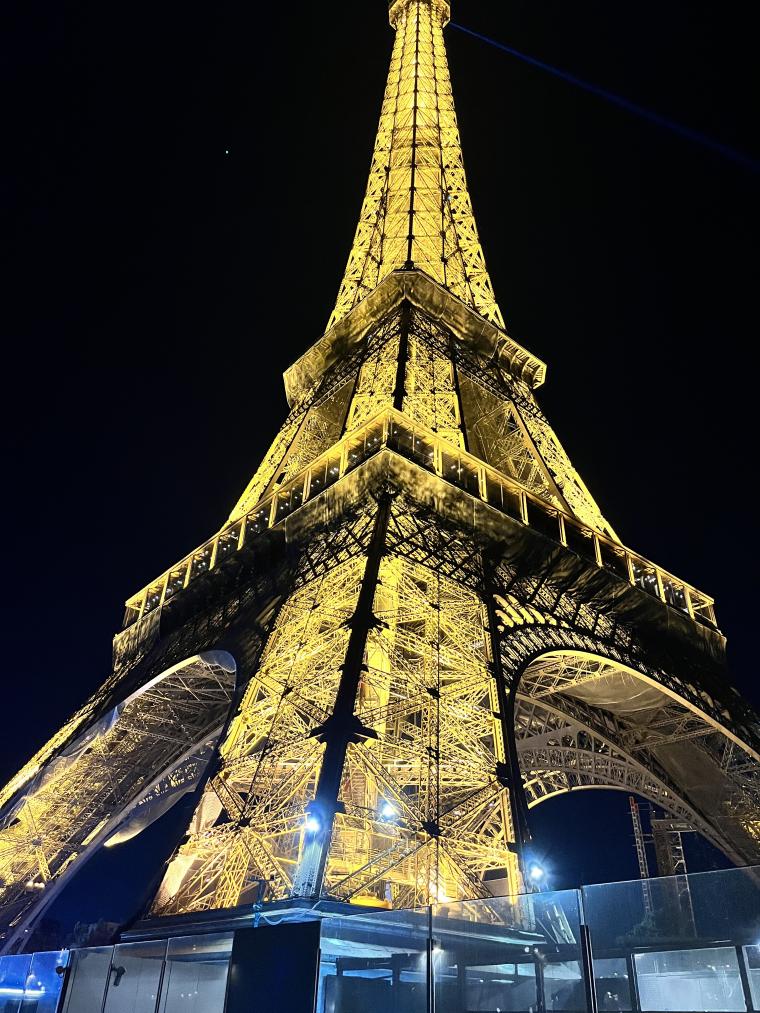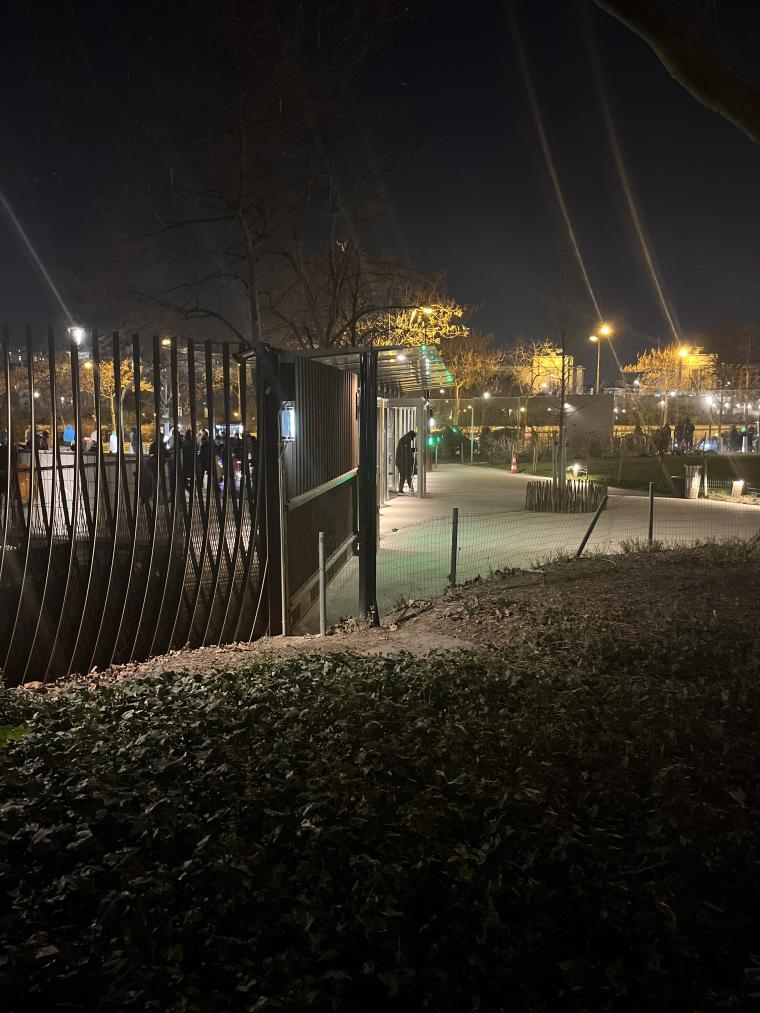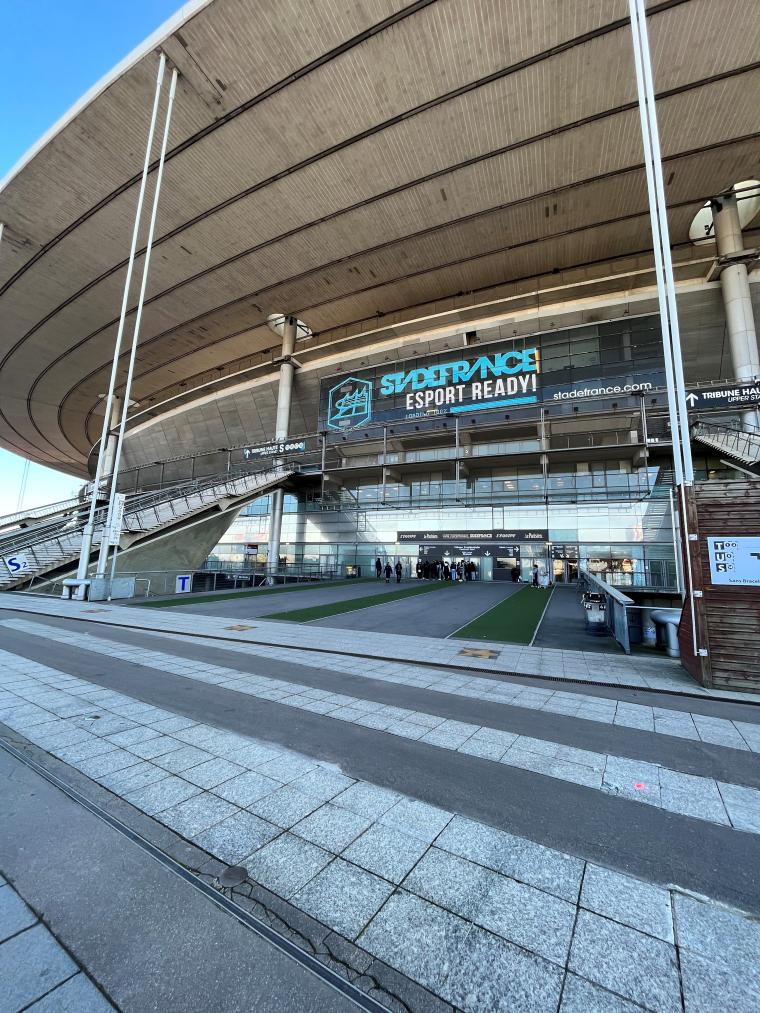Paris Goes for Gold
The Paris Olympics 2024 begin in exactly one month. Making the Games in the French capital safe involves not only securing the sporting event locations but also the sightseeing attractions, and above all the masses of people who are expected to attend.

The 2024 Summer Olympic Games will be held from 26 July to 11 August in the French capital, Paris. This is the third time after 1900 and 1924 that the city will host the event. The effort required to secure the event locations, the athletes’ and their support personnel’s accommodation, also the tourist attractions of all the visitors outside the Games, is a Herculean task for all those involved.
The French company Sorhea, as a manufacturer of perimeter security systems in their home market of France and one of the European market leaders, has already been involved in securing the Olympic Games properties for a number of years with its products. The building sites and also the material storage depots for the athletes’ village have been protected using various technological security solutions.
A Metropolis with Iconic Global Sites
Not only are numerous government and public buildings in the Paris region being protected but also various sports arenas and prestigious sightseeing venues. The customer list of Sorhea includes the Stade de France, by far the largest stadium in the country, as well as the Eiffel Tower, the tallest building and icon of the city of Paris recognized worldwide.
Understandably, no information can be given about the security measures that have been implemented so far for the 2024 Olympic Games because of the current threat level. It is possible, however, to provide some general information on the typical challenges that confront physical security and perimeter protection providers for such a large international sporting event. The Olympics are faced with these security challenges:
- Terrorist threats: High visibility events, such as the Olympic Games, are potential targets for terrorist organizations. French authorities have to plan and implement robust security measures to counter this threat. These can include the activation of additional policing authorities, the exchange of information and the observation of potential threats.
- Security of the event locations: Ensuring the security of the various Olympic event locations is a mammoth operation. It involves access control, checking the participants and their possessions, as well as ensuring that only authorized personnel and vehicles have access to restricted areas.
- Crowd control: Controlling large numbers of people during the games is a complex task. Measures must be taken to prevent overfilling and to be able to react to medical emergencies or to initiate evacuation procedures that ensure the safety of spectators, the athletes and the staff.
- Cybersecurity: The dependence on technology for event management and communication means that cybersecurity can be a problem. Protecting the systems against cyberattacks is fundamentally important to avoid interruptions and potential threats to IT security.
- Transport security: The transport infrastructure used by the athletes, staff and spectators is a potential target. Making the airports, railway stations and other transport nodes secure is just as important as ensuring the security of the public transport that moves the people to and from the event locations.
- Coordination and information exchange: Effective communication and cooperation between various different security authorities at home and abroad is very important. The exchange of information and joint operations is essential to identify potential threats and to react to them.
- Protests and demonstrations: There can be protests and demonstrations at large events, some of which represent a security problem. The authorities must strike a balance between peaceful protest and the maintenance of order and security.
- Emergency response: Preparation for and response to emergencies, such as natural catastrophes or medical crises, is highly important. Preparation includes ensuring that medical equipment and sufficient personnel are always available.
- Insider threats: Security personnel and event personnel must be thoroughly checked in advance in order to minimize the threat of insider attacks. Background checks and continuous surveillance are two elements of this.

It is important to realize that the security measures for the Olympic Games are normally confidential for operational reasons.
The organizers work closely with local, national and international security authorities to develop comprehensive security plans to react to potential threats and minimize risks. Security aspects are taken very seriously and significant resources are applied to ensure the security of participants and spectators. The actual security challenges for the 2024 Olympic Games in France will be dependent upon the geopolitical situation and the security situation at that point in time.
Current Danger Level in France
The French government raised its Vigipirate security warning system to the highest level of ‘Emergency Attack’ (Urgence Attentat) on 13 October after a terrorist knife attack in the town of Arras in which a French teacher was killed.
As a result, the population of the whole of France as well as visitors were met with increased security measures in public areas, including the airports, public transport, places of worship, sightseeing locations, schools, large sports arenas and in large shopping plazas.
There have recently been numerous bomb threats at airports, schools and tourist locations, such as the Palace of Versailles and the Louvre, and the French Executive has warned of ‘importing’ the Middle East conflict to Europe and France.
The ambassadors of various countries have reminded their citizens to be watchful around them, to take suitable measures to increase their personal security, and to avoid demonstrations and areas with increased police activity. Always be careful when near large gatherings or protests, and leave the area immediately if demonstrators clash with the police or damage property. Always follow the directions of the police and rescue services.
The French authorities are actively monitoring terrorist threats by organized groups and radicalized individuals. Attacks can take place with little or no warning and be aimed at tourist locations, large sport and cultural events, as well as other public venues that attract a large number of people. Visitors to crowded and popular tourist attractions should take particular care.
French Rules on Video and AI in Public Areas
The French decree to regulate the use of algorithms during the Olympic Games in Paris was finally published at the end of August 2023. Tenders have been issued by the Depafi (French Department of the Interior) for the supply, installation and maintenance of a ‘video protection solution with artificial intelligence’.
In the decree it states that: “In a test phase and until 31 March 2025, […] the images that are obtained with the help of video protection systems […] and cameras installed in aircraft […] or places where sporting events, leisure or cultural events take place”, in particular where people may be exposed to the danger of terror acts or severe attacks on people’s security and their environment, as well as in vehicles and preferential public transport and on the roads that may help because of their presence or their situation, can be subjected to algorithmic processing.
The decree contains a list of ‘previously defined events’ that might be subject to algorithmic processing:
- the presence of unattended items in protected areas
- the presence or use of weapons
- the non-observance of traffic rules by a person or a vehicle
- the presence or traversing of a person or a vehicle in a prohibited or sensitive area
- the presence of a person on the ground after falling
- mass movements of people
- an increased concentration of people
- or the outbreak of a fire.


A further clarification about the use of AI in video surveillance in public areas in France deserves a mention: The decree states, “Only algorithmic processing may be used that has been developed by or for the state, or has a certificate of conformity issued by the French Department of the Interior.”
EU Discussion about Use of AI
The not yet final list for the approval of AI in public areas to forbid intrusive and discriminatory use, created by the European Union Members of Parliament and currently being discussed, involves among other matters:
- biometric remote identification systems in ‘real time’ in publicly accessible spaces
- ‘subsequent’ biometric remote identification systems, with the exception of the criminal investigation of severe crimes and upon the approval of a judge
- biometric identification systems using sensitive features (such as gender, race, ethnic origin, nationality status, religion or political orientation)
- predictive police systems (based on profiling, location or previous criminal behavior)
- emotion recognition systems that are used for law enforcement in border management, at work and in training establishments
- the general gathering of facial images from the internet or CCTV recordings to feed face recognition databases (which is a violation of human rights and the right to privacy).
Newest Technology amid Oldest Aspiration: Security
Flying taxis, autonomous shuttles, assisting robots – technology will be at the center of the 2024 Olympic Games in Paris. A gigantic laboratory in which artificial intelligence will be used, and in particular in security applications, is a first at national level. The security challenges that the event generates are giving the authorities some headaches, especially the one hundred thousand people who are expected for the opening ceremony along the Seine River. The French cities are hoping that the new technology can be smoothly integrated into the security plans and will deliver decisive security benefits.
Paris, in particular, is acutely aware of the mammoth task because, apart from the Olympic arena, the masses of people at sightseeing locations and tourist attractions as well as the monuments must be protected.









